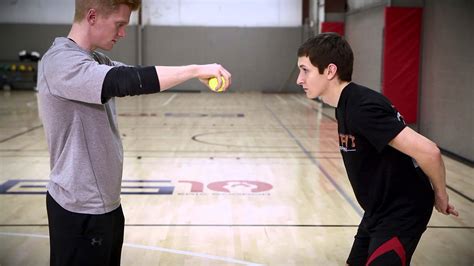How to Improve Reaction Time: A Comprehensive Guide
Improving your reaction time isn't just about gaming prowess; it's about enhancing your overall cognitive function and physical performance. Whether you're an athlete striving for peak performance, a gamer aiming for a competitive edge, or simply looking to sharpen your reflexes, this guide provides actionable strategies to significantly boost your reaction speed.
Understanding Reaction Time
Before diving into improvement techniques, it's crucial to understand what reaction time actually is. Reaction time is the time it takes for your brain to process a stimulus and initiate a response. This involves several stages:
- Sensory Input: Your senses (sight, sound, touch) detect the stimulus.
- Neural Processing: Your brain receives and interprets the information.
- Motor Output: Your brain sends signals to your muscles to react.
- Action: The physical response occurs.
Many factors influence reaction time, including age, genetics, fatigue, and even the time of day. However, significant improvements are achievable through dedicated practice and lifestyle changes.
Proven Methods to Enhance Your Reaction Time
1. Regular Exercise: The Foundation of Speed
Physical fitness is paramount for optimal reaction time. Engaging in regular cardiovascular exercise improves blood flow to the brain, delivering more oxygen and nutrients crucial for neural function. Activities like running, swimming, cycling, and HIIT (High-Intensity Interval Training) are particularly beneficial.
2. Cognitive Training: Sharpening the Mind
Brain training games and exercises specifically designed to improve reaction time can yield significant results. These games often involve quick decision-making, rapid responses to visual or auditory cues, and precise hand-eye coordination. Many free and paid apps are available, offering a variety of stimulating challenges.
3. Practice Makes Perfect: Targeted Drills
Specific training drills tailored to your goals are crucial. For athletes, this could involve reaction-based drills relevant to their sport. For gamers, it might involve playing games that demand quick reflexes. Consistency is key; regular, focused practice is far more effective than sporadic efforts.
4. Nutrition and Hydration: Fueling Your Performance
A balanced diet and adequate hydration are essential for optimal brain function. Focus on consuming foods rich in antioxidants, omega-3 fatty acids, and complex carbohydrates. Staying well-hydrated ensures efficient nutrient delivery to your brain and muscles. Avoid excessive caffeine and alcohol, as they can negatively impact reaction time.
5. Sufficient Sleep: Rest and Recovery
Adequate sleep is crucial for cognitive function and physical recovery. Aim for 7-9 hours of quality sleep per night. A well-rested brain processes information more efficiently, leading to faster reaction times.
6. Mindfulness and Stress Reduction: A Calm Mind, a Faster Response
Chronic stress can impair cognitive function and slow reaction time. Practices like meditation, yoga, and deep breathing exercises can help reduce stress levels and promote mental clarity, indirectly enhancing your reaction speed.
Measuring and Tracking Your Progress
Regularly assessing your reaction time provides valuable insights into your progress. Numerous online reaction time tests are available, allowing you to track your improvement over time. This data can motivate you to maintain consistency and refine your training strategies.
Conclusion: The Journey to Faster Reactions
Improving reaction time is a journey, not a destination. Consistent effort, combined with a holistic approach encompassing physical fitness, cognitive training, and healthy lifestyle choices, will yield significant improvements. Remember to track your progress, stay motivated, and enjoy the process of sharpening your mind and body.
